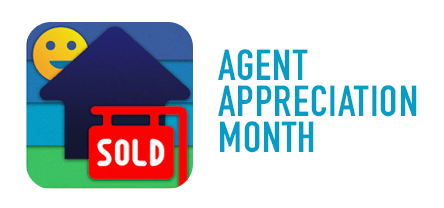 Celebrate Agent Appreciation Month and #ThankAnAgent with Inman this January. Discover more and see how to get involved, click here.
Celebrate Agent Appreciation Month and #ThankAnAgent with Inman this January. Discover more and see how to get involved, click here.
This is the second article in a four-part series analyzing Inman’s recent Agent Appreciation survey that will run each Friday in January. Read the first story here.
When Bob Sokoler was just starting out in real estate a decade and a half ago, he stashed his money away.
“I knew I needed to get over the fear of not having the next paycheck,” Sokoler recently told Inman. “So, I would hide money, knowing in the back of my head that I had a surplus of $25,000 to $50,000.”
The idea was to create a six-month cash reserve. The “hiding” was accomplished by pretending to write a massive check, and then putting the cash somewhere where it wouldn’t show up in his primary checking and banking accounts. Sure, he’d still know the money was out there, but not seeing it every day on a balance sheet meant that he didn’t “get emotionally invested in buying something that I didn’t have the money for.”
“I know I was playing psychological games,” Sokoler added. “But it worked.”

Bob Sokoler, center-right in the blue sport coat, with his team in Louisville. Credit: Bob Sokolar
Today, Sokoler owns the Sokoler Medley Team at RE/MAX Properties East in Louisville, Kentucky. Asked if he is satisfied with his career, he quipped that on a scale of one to 10, “I’m probably up around 12.”
But his experience speaks to one of the coldest and harshest realities of working as a real estate agent: There is no steady paycheck, and earning enough money — especially at the beginning — can be a constant struggle.
While things have worked out for Sokoler, data also shows that for many agents money tends to flow in more of a trickle than a flood. The National Association of Realtors, for example, reported that the median income for its members in 2018 was just $41,800 — about $20,000 less than the U.S. average during that same period.
To get a better sense of how real estate professionals feel about their money, Inman recently asked in a survey about both income and levels of satisfaction. Nearly 700 people from every U.S. state and a handful of foreign countries took the survey. The responses ultimately indicate that members of the industry are making a range of incomes and that feelings about those incomes are mixed, though most people appear to be generally satisfied.
Agents who spoke to Inman about the survey also said that money matters — but only up to a certain point.
Income and real estate professionals
Among the people who responded to Inman’s survey question about gross commission income, 22 percent said that they earned between $80,000 and $100,000. Another 12 percent reported earning between $60,000 and $80,000, with 11 percent each at two lower tiers.

Credit: Jim Dalrymple II
However, a large plurality of respondents — or 44 percent — chose “other” and wrote in an answer. Write-in responses varied considerably, but the vast majority at least said they were making six figures or more. Incomes in the $100,000 to $300,000 range were particularly common among the write-ins, though a handful of people reported earning more than $1 million.
Another, smaller handful of people also reported earning less than $20,000.
Satisfaction and Money
The survey also made clear that (unsurprisingly) income matters a lot to agents. The overwhelming majority of respondents — or nearly 80 percent — either agreed or strongly agreed that commission splits were among the most important factors when choosing a brokerage (company culture and technology were also important factors in brokerage choice).
Perhaps even more importantly, a majority of agents — or 55 percent — were happy with their income in 2019.

Credit: Jim Dalrymple II
The fact that people are satisfied with how much money they make is generally good news for the industry. However, the majority was not overwhelming and a full 39 percent indicated that they were not satisfied — suggesting that there are still plenty of people who for whatever reason want to make more.
This split is no doubt due to a lot of factors — time spent in the industry, personal ambition, etc. — though one of them may be that it simply takes different amounts of money to live in different parts of the country.
Sokoler, for example, told Inman that in his market he’d “love to see each agent making $50,000 a year minimum.” Top performers on his team can make hundreds of thousands, he explained, but a $50,000 per year income is at least enough to live in Louisville.

Dan Hamilton
Dan Hamilton, on the other hand, works in the Palm Springs area of Southern California. It’s a much more expensive area to live in and can draw a ritzy crowd — the Obamas have been known to frequent the area for example — and Hamilton estimated that he needs a minimum income of $100,000 to live on.
Meanwhile Paul Pastore, a RE/MAX agent in the Phoenix, Arizona, area noted that his region is filled with inexpensive homes and low taxes, among other things. That means agents in his area tend to do fine making around the national average of just over $40,000 per year.

Paul Pastore
“You’re not going to be driving any Maseratis,” he told Inman, “But you can get by on that.”
Inman spoke to more than a dozen survey respondents for this series, and they generally gave differing answers when asked about incomes in their markets. However, they did mostly agree that there is a minimum that agents need to earn in order to survive, take care of basic necessities and be happy.
Money can’t buy happiness
Researchers have also concluded in recent years that people need a certain amount of money in order to be happy. In 2018, for instance, researchers from Purdue University and the University of Virginia wrote that “income is known to be associated with happiness.”
But they also found that there was a limit to that association. Specifically, the researchers looked at data from the Gallup World Poll, which provided a sample of more than 1.7 million people across multiple countries, and concluded that “globally, we find that satiation occurs at $95,000 for life evaluation and $60,000 to $75,000 for emotional well-being.”
In other words, the research showed that people are generally satisfied with their incomes when they hit $95,000, and tend to have positive emotions with even less.
For North America specifically, the researchers identified a higher “satiation point” of $105,000.
A separate study from Princeton University, which was published in 2010, looked just at the U.S. and found that lower income exacerbates the emotional pain associated from various misfortunes, while emotional well-being rises with income.
However, the study — which used 450,000 responses to a Gallup poll — ultimately concluded that in terms of emotional satisfaction “there is no further progress beyond an annual income of ∼$75,000.”
Though the specific dollar amounts that these studies identified vary, the take away is similar and fairly straightforward: Money does buy happiness up to a point. And after that point, happiness doesn’t necessarily increase with greater income. In fact, the 2018 study actually found that after incomes hit a satiation point, subjects’ well-being was actually negatively impacted by further increases.
These types of findings support the more anecdotal conclusions from agents who told Inman that real estate professionals need to hit a certain income threshold, after which money and happiness aren’t so closely connected.
“I totally agree with that,” Pastore said. “Up to a certain amount money can make you happy, but after a certain amount, more isn’t necessarily going to make you happy.”
“At a certain point money doesn’t matter,” Hamilton similarly argued. “Loving what you do matters more.”
So what happens after agents reach a “satiation point” income?
Many of the agents who spoke with Inman described reaching an income that enabled them to maintain their lifestyle, after which their focus shifted.

Jeff Seman
Jeff Seman, a broker and owner of Ironwood Fine Properties in Arizona, said that when he was first starting out in the business he worked constantly trying to make enough money. That included working on weekends, and “every single holiday.”
“Sometimes I wasn’t home for dinner and I didn’t get to go to the kids soccer game on Saturday morning,” he explained.
A decade and a half later, however, Seman’s business has become more consistent and more constant. Though he could potentially have kept up the same pace from his early years and continued to watch his income rise, he instead gets to be more choosey about where his money comes from.
“Now I’m in a position where I don’t have to do that,” he said of working constantly. “So there may be a client I worked with in the past and I choose not to now.”

Diana Morgan
Diana Morgan, a Keller Williams agent in New Jersey, offered a similar perspective, saying that “once you’re over $100,000 it’s kind of all the same to me.”
“After you have what you need,” she told Inman, “it’s not just about me, you can help other people.”
In 2019 that meant spending more time with, and financially assisting, her kids — something that might not have been possible if Morgan hadn’t struck a balance between her time and the pursuit of income.
Like the other real estate pros who spoke with Inman, Sokoler agreed that money is useful, but has its limitations as well. That’s a point made painfully clear by the fact that he used to work with his first wife before losing her to cancer several years ago.
The experience, he explained, drove home what really mattered.
“What made me happiest was working with my wife,” he recalled. “And then she passes away from cancer. The money was great but I lost my partner.”
In the time since, Sokoler has remarried and now works with his adult children. He’s happy. And he said that today, working with family and helping his agents are the two things that bring him the most joy.
“Once people reach the level of income where they feel comfortable,” Sokolar concluded, “I think each person has to find what brings them joy.”
Next Friday: Agents and their benefit
Are you ready for what the industry holds in 2020? Inman Connect New York is your key to unlocking opportunity in a changing market. At Connect you will gain insight into the future, discover new strategies and network with real estate’s best and brightest to accelerate your business. Create your 2020 success story at Inman Connect New York, January 28-31, 2020.
Agenda | Speakers | Past Connect Videos
Thinking of bringing your team? There are special onsite perks and discounts when you buy tickets together. Contact us to find out more.













